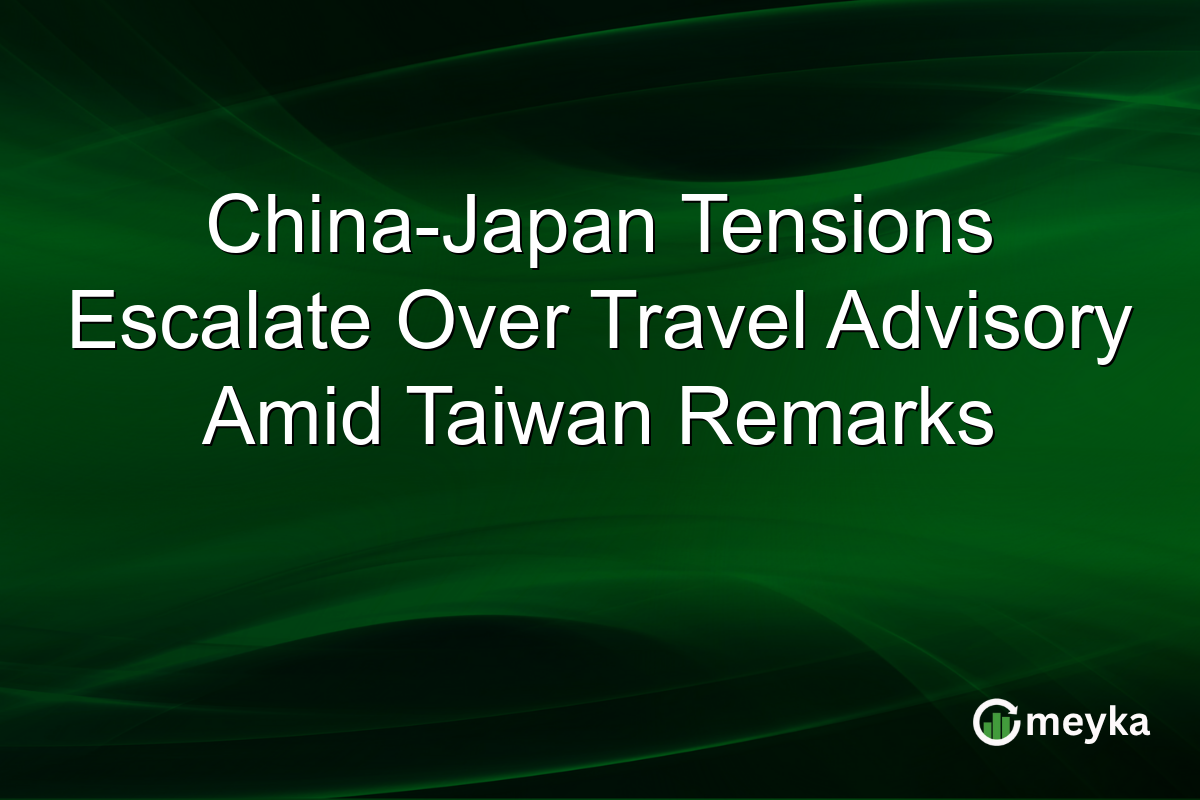China-Japan Tensions Escalate Over Travel Advisory Amid Taiwan Remarks
China-Japan tensions have recently escalated, sparked by remarks from Japan’s Prime Minister Sanae Takaichi concerning Taiwan. This has led to China issuing a travel advisory against Japan, highlighting growing geopolitical friction. The implications of this development are significant, affecting tourism and broader economic relations between the two nations.
Continue Reading on Meyka
This article is available in full on our main platform. Get access to complete analysis, stock insights, and more.
Read Full Article →





